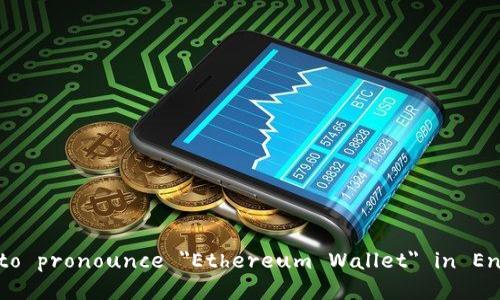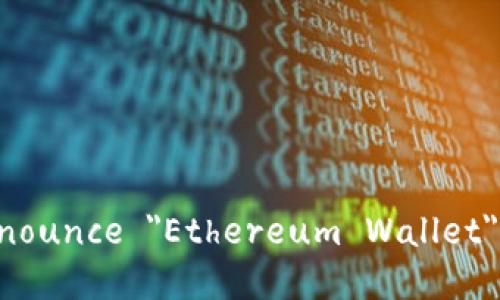How to pronounce "Ethereum Wallet" in English?
1. What are the types of Ethereum wallets?
Ethereum wallets can be broadly categorized into two types: hot wallets and cold wallets. Hot wallets are those that are connected to the internet and are relatively easy to access. Cold wallets, on the other hand, are offline wallets that provide the highest level of security. Examples of hot wallets include MyEtherWallet, MetaMask, and Exodus, while examples of cold wallets are hardware wallets like Ledger Nano S or Trezor.
2. How do I set up an Ethereum wallet?

The process of setting up an Ethereum wallet varies from wallet to wallet, but the general steps are as follows:
- Choose a wallet provider and download the wallet software or create an account on an online wallet service.
- Create a wallet by following the prompts on your chosen wallet provider's website.
- Choose a strong, unique password and write it down and store it in a safe place.
- Back up your wallet's recovery phrase or seed phrase. This is a set of 12 or 24 words that can be used to recover your wallet if you ever lose access to it.
- Link your wallet to an exchange or trading platform if you plan to buy or sell Ether or other cryptocurrencies.
3. What are the security risks associated with Ethereum wallets?
As with any digital asset, there are security risks associated with Ethereum wallets. Some of the common risks include:
- Phishing attacks: criminals can create fake websites that look like legitimate wallets to trick users into revealing their private keys or recovery phrases.
- Malware or hacking attacks: your computer or smartphone could be targeted with malicious software that steals your private keys or accesses your wallet without authorization.
- Human error: forgetting your password or losing your recovery phrase can result in the permanent loss of your digital assets.
To mitigate these risks, it's important to use a reputable wallet provider, enable two-factor authentication, and keep your private keys and recovery phrases in a secure location.
4. Can I store other cryptocurrencies besides Ether in an Ethereum wallet?

Yes, many Ethereum wallets support the storage and management of other cryptocurrencies that are based on the Ethereum blockchain. These tokens are often referred to as "ERC-20 tokens" because they follow a common set of rules outlined in the Ethereum Improvement Proposal (EIP) #20.
5. Can I access my Ethereum wallet on multiple devices?
Yes, most Ethereum wallets are designed to be accessed from multiple devices, such as your computer, smartphone, or tablet. However, it's important to ensure that your wallet is properly secured on each device and that you have backup copies of your recovery phrase in case you ever lose access to your wallet.
6. Are there any fees associated with using an Ethereum wallet?
Yes, most Ethereum wallets charge a small fee for each transaction that you initiate on the blockchain. These fees are paid in Ether and are used to incentivize miners to confirm your transaction and add it to the blockchain. The amount of the fee can vary depending on network congestion and other factors, but it's typically a small fraction of an Ether.
In conclusion, Ethereum wallets are essential tools for anyone interested in buying, selling, or managing Ether and other Ethereum-based tokens. By choosing a reputable wallet provider, following best practices for security, and staying educated about the risks and benefits of cryptocurrency, you can participate confidently in the growing ecosystem of decentralized finance.


